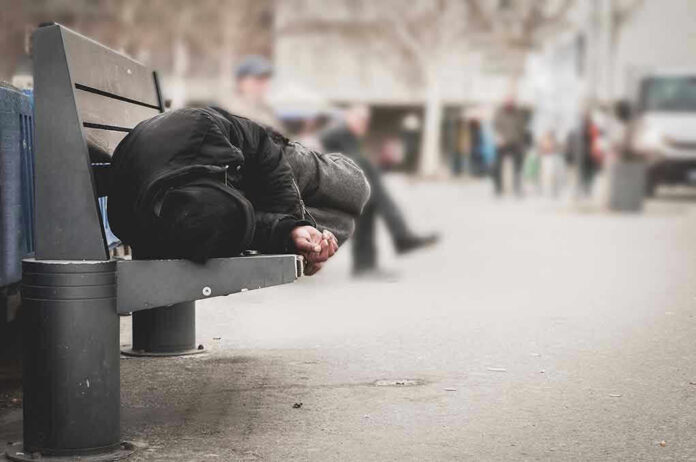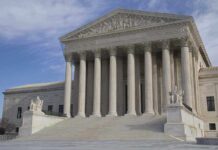President Trump’s latest $3.3 billion cut to federal homeless housing is sparking alarm among advocates, as up to 170,000 Americans face being pushed back onto the streets while proven solutions are sidelined for stricter, criminalization-focused policies.
Story Snapshot
- The Trump administration proposes slashing up to $3.3 billion from federal homeless housing programs, with immediate cuts of $532 million.
- As many as 170,000 people currently housed through federal grants may lose shelter and return to homelessness.
- New executive orders shift focus from “Housing First” models to treatment compliance and increased criminalization of homelessness.
- Homelessness advocates and experts warn of a looming humanitarian crisis and long-term destabilization of the sector.
Trump Administration Targets Federal Homeless Grants
The Trump administration has put forward a sweeping proposal to reduce federal spending on homelessness, seeking to cut up to $3.3 billion from housing programs. Central to this plan is the Homeless Assistance Grants account, which supports permanent housing, rapid rehousing, and emergency shelters across the country. The administration’s fiscal year 2026 budget calls for an immediate $532 million reduction, with broader reports indicating an even larger, multi-billion-dollar rollback is possible if Congress approves the full plan.
Trump admin targets $3.3B homeless housing program, 170,000 people could face return to streets: report https://t.co/jrnpOuODfm
— Fox News Politics (@foxnewspolitics) September 30, 2025
If enacted, these cuts would represent the most significant federal rollback of homelessness funding in recent history. The administration’s actions coincide with a new executive order that shifts federal policy away from the evidence-based “Housing First” approach—a model credited with reducing chronic and veteran homelessness in the past two decades. Instead, the administration is prioritizing programs that condition housing on treatment compliance and expand law enforcement involvement, with critics warning this tilt toward criminalization will have dire results for vulnerable Americans.
Shift From “Housing First” to Punitive Strategies
The “Housing First” model has guided federal homelessness strategy since the early 2000s, emphasizing immediate, unconditional access to permanent housing as the foundation for recovery. Under the new Trump policy, this approach is deprioritized in favor of initiatives that mandate treatment or behavioral compliance before individuals can access housing. The executive order issued in July 2025 directs states to treat homelessness and mental illness as criminal issues, authorizing expanded police involvement and institutionalization. Service providers and advocacy groups argue that this shift not only undermines best practices but also risks displacing hundreds of thousands from the safety net that keeps them housed.
Advocacy organizations including the National Homelessness Law Center and National Alliance to End Homelessness have slammed the administration’s approach, warning that forced treatment and criminalization have repeatedly failed to solve homelessness and instead drive up public health and safety costs. Experts contend that these policies will increase emergency service burdens and destabilize communities, while eroding the infrastructure that supports long-term solutions.
Impacts on Vulnerable Americans and Local Communities
With an estimated 170,000 people at risk of losing their housing, the consequences of the proposed cuts are projected to be swift and severe. Individuals and families currently relying on Homeless Assistance Grants may face a return to street homelessness, while service providers—many already stretched thin by rising need—brace for disruption and layoffs. In both urban and rural areas, communities are likely to see an increase in visible homelessness, public health challenges, and demand for emergency interventions.
Short-term, the funding reductions threaten to undermine shelters and permanent supportive housing, leaving local governments to pick up the slack. Long-term, the sector could see a chilling effect on innovation and evidence-based practice, as providers navigate new mandates and shifting priorities. Political backlash is mounting from advocates, local officials, and affected communities, with Congressional review of the budget proposal expected to be contentious in the coming months.
Despite administration claims that the new approach will enhance accountability and public safety, the broad consensus among researchers and practitioners is that the cuts and criminalization-first tactics will exacerbate homelessness, drive up costs, and destabilize families. Both the National Alliance to End Homelessness and the National Homelessness Law Center continue to call for fully funding homelessness programs as critical to reversing the ongoing crisis.
Sources:
The President’s Budget Proposal Cuts $532 Million in Homelessness Funding
Statement from National Homelessness Law Center on Trump Executive Order
Understanding Trump’s Executive Order on Homelessness: Attacks on Housing First











